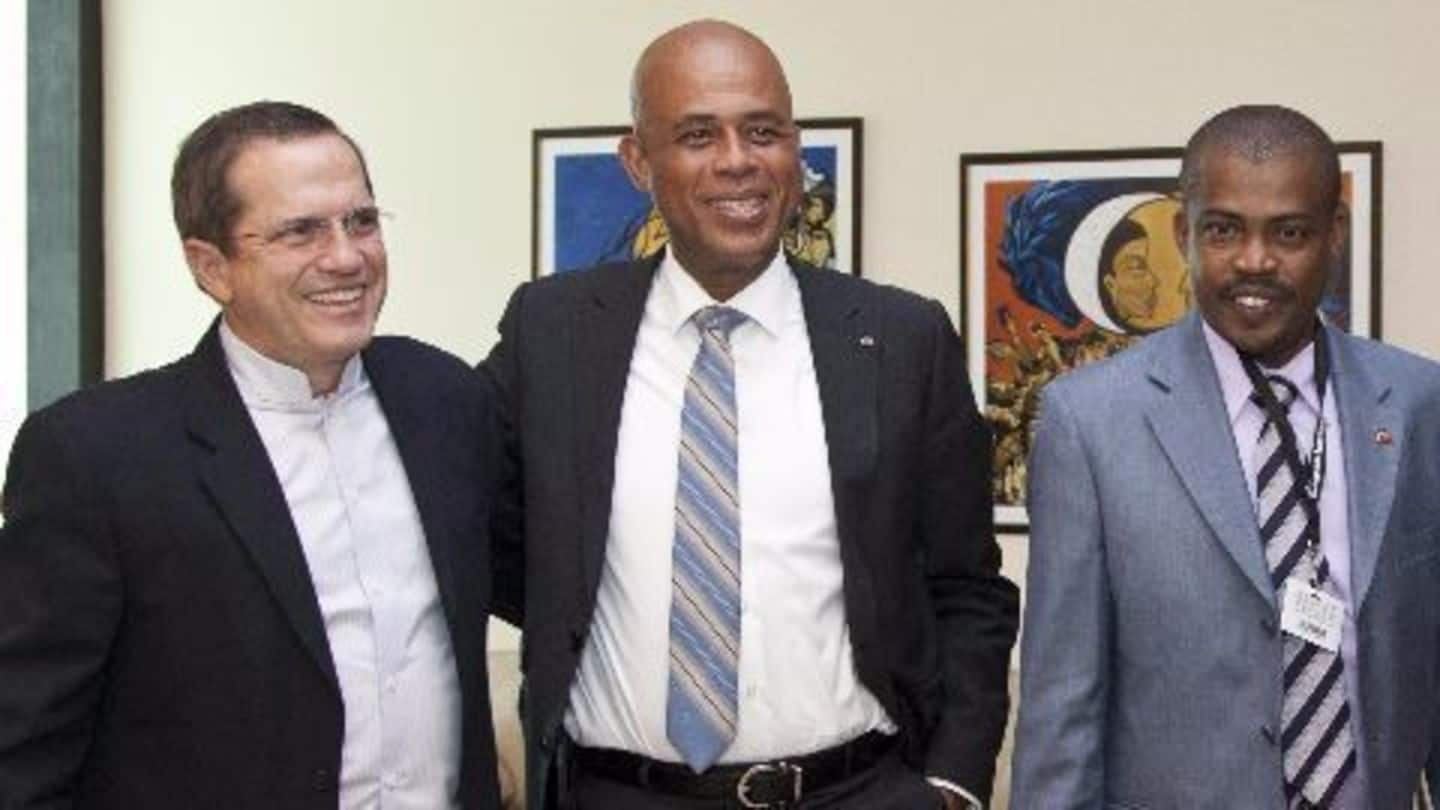
Haiti: Caretaker government to take over as President resigns
What's the story
Haiti's President Michel Martelly stepped down at the end of his 5-year term without an elected successor to take over the office, as the opposition's protests against the presidential elections intensified. A provisional government has been set up after Martelly reached an agreement with the parliament. Meanwhile, the first day of the annual Haitian carnival was called off amid threats of more protests.
Introduction
Democracy in Haiti
Haiti, a Caribbean nation, is one of the poorest countries in the world with a history of political instability. Democracy has been slow to take root in Haiti, officially a presidential republic, but commonly acknowledged to be authoritarian in practice. In 2011, former pop star Micheal Martelly was elected as President and he continued to rule by decree after elections were delayed.
Information
Haiti elections 2015-16: International parties extend help
International parties, including the US, extended funds for democratic elections to be held in Haiti in 2015. Peacekeeping groups and observer groups from several organizations were deployed across the country.
25 Oct 2015
Haiti holds presidential elections, runoff scheduled
Haiti's presidential elections were contested by 58 candidates including Jovenel Moise, who has little political experience but is backed by President Micheal Martelly and Jude Celestin, contesting the presidential elections for the second time. No candidate emerged with a clear majority, with Jovenel Moise winning the most votes but falling 33% short of a majority. A second ballot was scheduled for 25 December 2016.
22 Dec 2016
Celestin challenges electoral authority, protests breaks out in Haiti
Jude Celestin, joined later by several other candidates, alleged that the Electoral Provincial Authority had manipulated results to favour the ruling party. Supporters of Jude Celestin and other candidates conducted demonstrations and protests to demand the suspension of the electoral authority. Celestin demanded cancelation of the runoff scheduled on 25th of December. The runoff was postponed to January 2016 amid the growing unrest.
25 Jan 2016
Presidential runoff cancelled amid escalating violence
Attempts to conduct the runoff elections failed on 17 January and again on 25 January as protests against the Martelly government escalated. Celestin, the presidential candidate from the opposition party, demanded fresh elections to be held in February when President Martelly's term ended. Several observer groups pulled out of Haiti even as the Obama administration pushed Haitian leaders to move forward with the runoff.
Information
Soldier killed by protesting mob
A day before President Micheal Martelly was to step down from his office, a former soldier in his army was stoned to death by anti-government protestors.
6 Feb 2016
Haitian leaders agree over provisional government, elections in April
Haitian leaders negotiated an agreement to install a provisional government a day before President Michel Martelly's term ends. An interim president would be elected by the parliament for a term of 120 days. The provisional government would ensure a Provisional Electoral Council to carry out presidential elections by April 24, 2016, concluding the election cycle from last year.
Information
The previous interim government
Haiti last had an interim government in 2004 after a rebel group ousted President Jean Bertrand-Aristide and the country broke out in chaos. The interim government then stayed on for 2 years.